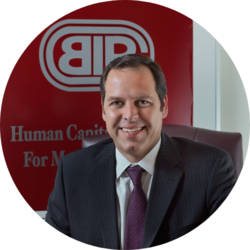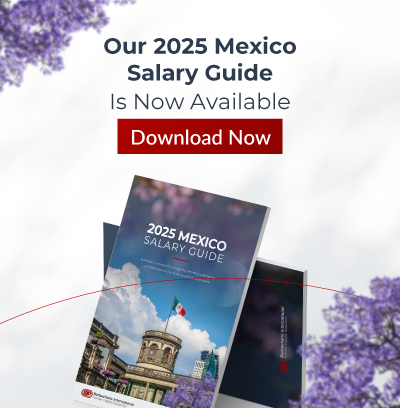
When it comes to hiring senior leaders, most organizations spend a lot of time reviewing resumes. That’s understandable. Experience matters. Titles matter. But executive readiness, the ability to step into a critical leadership role and actually succeed, is rarely found on paper alone.
At Barbachano International, we’ve seen this disconnect many times. A candidate may look ideal on the surface. They’ve led similar teams, worked in your industry, maybe even held a C-suite title. But when they enter a new environment, things don’t quite land. Expectations go unmet, momentum slows, and six months later, you are restarting the search.
The problem isn’t lack of experience. It’s assuming experience equals readiness.
So how do you spot a truly ready executive before the interview even begins?
Look for Patterns, Not Just Milestones
Instead of scanning for the perfect job title or specific employer, look at the trajectory. How has the candidate grown across roles? Have they taken on messy or complex challenges? Have they stayed in comfort zones or stepped into situations that required transformation?
Harvard Business Review points out that executive readiness is less about competence and more about capacity to grow into what comes next. Leaders who succeed in new roles often have a track record of navigating ambiguity, building strong teams quickly, and keeping perspective when the pressure is high.
What matters is not just how long they’ve stayed in roles, but what they’ve done with the time.
Read Between the Lines on Soft Skills
As leaders rise, the job becomes more about influence than task execution. Yet most resumes still focus heavily on operational wins: cutting costs, growing revenue, launching new systems.
Those are all important. But real executive readiness shows up in how those outcomes were achieved. Did the leader align stakeholders across regions? Did they bring a fractured team together? Did they know how to push change without losing people?
McKinsey emphasizes that resilience, empathy, and inclusive leadership are no longer soft skills; they are essential for executives leading in complex, fast-changing environments. These qualities may not be spelled out on a resume, but they often surface in how leaders describe challenges, growth, and the people around them.
Look for signs of reflection, collaboration, and growth. Leaders who speak with humility and who credit their teams are often more mature in their approach than those who focus only on numbers.
Watch for Context Shifts
Anyone can look great in a stable, well-resourced company. The question is what happens when things go sideways.
Executives who are truly ready tend to have stories about adapting to change. Maybe they led through a restructuring. Maybe they built trust with a skeptical board. Or maybe they had to shift strategy midstream when conditions changed. These are the kinds of moments where real leadership gets tested.
If a candidate has only worked in one kind of environment, ask how they’ve responded when faced with uncertainty. It is not about finding the perfect past experience. It is about understanding how they think and respond under pressure.
Look for Cross-Cultural Experience
For global roles, especially across the U.S. and Latin America, cultural fluency is a must. Can the candidate build trust with teams from different backgrounds? Do they know how to adjust their communication style when norms shift? Have they led teams where everyone didn’t think or work the same way?
Harvard Business Review points out that today’s strongest leaders are often bridge builders. In our own experience, many bilingual and bicultural executives already operate this way. But that ability still needs to be recognized and assessed with intention.
Leaders who have worked across borders, led multicultural teams, or translated strategy into local execution often bring a level of nuance that others do not. That depth matters, especially when companies are operating in dynamic and culturally diverse markets.
Ask Better Questions Early
By the time you reach the final interview, you’ve already filtered for experience. But you can design your process to surface leadership maturity earlier.
Start by rethinking what your job descriptions really communicate. Are you filtering for growth potential, or just replicating past roles?
You can also introduce better screening questions upfront. Ask about a decision they made with limited information. Or a time when they had to rebuild trust inside a team. Or a lesson they learned the hard way. These kinds of questions often reveal more than a list of accomplishments ever will.
And once you’re in the interview, listen for how they engage with you. Leaders who ask smart, specific questions and who genuinely want to understand your company often have a higher level of readiness than those focused solely on presenting themselves.
A Smarter Way Forward
Executive readiness is not about checking boxes. It is about finding executives who have what it takes to walk into complexity and deliver results and clarity. Leaders who can earn trust quickly, make sound decisions under pressure, and move an organization forward, even when the path isn’t fully defined.
Spotting that kind of readiness takes more than reading resumes. It requires stepping back, asking different questions, and understanding the patterns behind a person’s career.
Who you partner with makes all the difference when the stakes are high. At Barbachano International, we go deeper than checking boxes or matching resumes. We take the time to really understand what the role needs and the kind of leader who will make a meaningful difference. It’s not just about finding someone qualified. It’s about finding someone truly ready to lead.

By Fernando Ortiz-Barbachano
President & CEO of Barbachano International
Barbachano International (BIP) is the premier executive search and leadership advisory firm in the Americas with a focus on diversity & multicultural target markets. Since 1992, BIP and its affiliates have impacted the profitability of over 50% of Fortune 500 Companies. BIP has been recognized by Forbes as Americas’ Best Executive Search Firms and currently ranks #8 and #3 on the West Coast.

